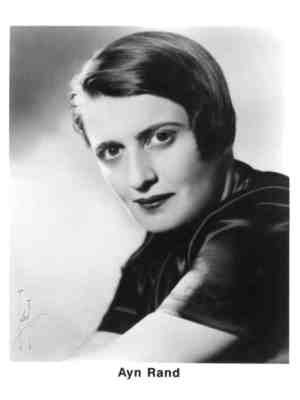It is mind boggling to think about how many millions of people in the world, let alone in America, still consider whatever is said in the news to be the 'truth'. Whose 'truth'?
Last week's post Colbert Shrugged: Ayn Rand Institute Responds to 'Rand Illusion' prompted such a strong reaction from fans of both Rand and Colbert that 136 comments later, truths of all shapes emerged from the heated discussion. One topic that came up time and again was the importance of media literacy.
Part 2 of my interview with Onkar Ghate, senior fellow at the Ayn Rand Institute looks at the way Ayn Rand's classic 1957 work 'Atlas Shrugged' has been mediatized in recent months to communicate political messages.
How have the political left and right used Rand's characters, stories and philosophy in the media of late to reinforce their positions within a larger audience?
I don't think liberals or democrats are making use of Rand; rather, they are attacking her and Atlas Shrugged. (I suspect that Stephen Colbert is a liberal.)
Conservatives are making use of Atlas Shrugged, but only in a limited political sense. They rarely mention the fact that Atlas Shrugged is about a moral revolution and not a political one. One major reason they fail to mention this aspect of Atlas Shrugged is that the morality of rational self-interest stands opposed to religious ethics, which demands that an individual subordinate himself to something that is supposedly higher than himself. Explicitly or implicitly, most conservatives support a religious approach to morality. And of course religious ethics is the source of the slogan that we are our brother's keeper.
On Rand's view, therefore, conservatives are not actually opponents of socialism but its enablers, because they, like the liberals, advocate the opposite of a morality of rational self-interest: they advocate selflessness and altruism.
How much of what we're seeing in the media's recent references to Atlas Shrugged is actually reflective of Rand's philosophy of Selfishness?
It is true that Atlas Shrugged depicts an America in which the government, through various "emergency" measures, seizes control of the economy. But what most commentators miss is that politics is not the focus of Atlas Shrugged. Its focus is on morality and philosophy. The story of Atlas Shrugged is about productive individuals learning fully to value their own lives and happiness, and coming to understand that this requires uncompromising devotion to their own minds and to what is in fact morally right. They must learn that to fully live their own lives and achieve happiness, they need a new morality of rational self-interest.
As one aspect of this issue, Atlas Shrugged in effect argues that only such a morality can in fact explain, justify and defend why an individual has the moral right to life, liberty, and the pursuit of happiness. Contrary to the Declaration of Independence, Rand does not regard these rights as self-evident.
Notice that the rights Jefferson lists all sanction self-interest: my moral right to my life, my moral right to my freedom to think and act, my moral right to pursue my happiness. If selfishness is evil, then these rights are wrong, morally wrong.
And so in a society that regards the pursuit of self-interest as evil, like the society depicted in Atlas Shrugged and like today's society, these rights will be tossed aside as wrong. If we are our brother's keeper, as Obama declares (echoing the conventional wisdom) -- if your moral duty is to serve your neighbor and anyone else who is in need, then you don't have the moral right to pursue your own life and happiness.
As in the case of any controversial figure, there is no substitute for going to the source. To discover what Rand maintained, read her works. To understand the meaning and importance of Atlas Shrugged, pick up the novel.
Ayn Rand's work was introduced to this author when I began my first job in journalism as an eager teen. Over a decade later, Rand's books remain constant reminders of the powerful influence media has in shaping perceptions of who we are as individuals, as a society and of the great responsibility that accompanies such influence. Where broadcast media beams a one-way signal into your living room, digital media opens up the debate to non media pundits. That's you. This is where you get a voice. What's your truth around the mediatization and politization of Ayn Rand's work and about the importance of media literacy in general?
